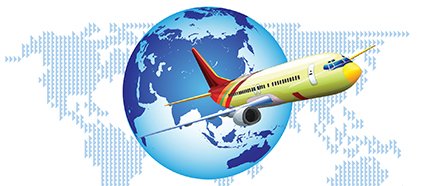The terms “vacation” and “leave” are related to taking time off, but they have some key differences:
Specificity:
- Vacation: Refers to a specific period taken off for leisure, relaxation, or travel. It usually implies a planned trip or activity.
- Leave: This is a broader term encompassing any authorized absence from work or other obligations. It can be used for various reasons, including vacation, sickness, personal reasons, parental leave, bereavement, and more.
Purpose:
- Vacation: Primarily used for rest and enjoyment, focusing on leisure activities and disconnecting from work or regular routines.
- Leave: Can be used for various purposes, not just leisure. It might be for addressing personal or family needs, fulfilling obligations like jury duty, or attending to health matters.
Length:
- Vacation: Typically refers to a longer period off, ranging from a few days to several weeks.
- Leave: Can be used for shorter or longer periods, depending on the specific type of leave and its purpose.
Payment:
- Vacation: Often, but not always, paid by the employer, depending on the company’s policy and the employee’s contract.
- Leave: Some types of leave, like sick leave and parental leave, might be paid, while others, like personal leave, might not be.
Accrual and carryover:
- Vacation: Usually has a set amount of days that accrue over time and can be carried over to the next year, within certain limits.
- Leave: Different types of leave might have different accrual and carryover policies, varying based on the employer’s program and legal requirements.
Overall:
- Vacation: Think of it as a specific type of leave dedicated to leisure and rejuvenation.
- Leave: Consider it a more general term for any authorized absence from work or obligations, covering various purposes and lengths.
In short, “vacation” is a subcategory of “leave” with a stronger focus on leisure and planned time off. If you want to learn more about vacations, I wrote this article >>>> What is vacation pay in Canada? that you might find very helpful.
Unveiling the Nuances: Vacation vs. Leave – A Traveler’s Guide to Time Off.
As a seasoned explorer, with over 20 years spent traversing continents and cultures, I can confidently say that time off isn’t a monolith. It’s a spectrum, a shimmering landscape of possibilities stretching from the sun-drenched beaches of escapism to the purposeful peaks of personal growth. But where do “vacation” and “leave” fall on this map? Are they interchangeable oases, or distinct territories offering unique experiences and benefits? Buckle up, fellow wanderers, because we’re embarking on a journey to unveil the nuances of these oft-confused terms.
I. Demystifying “Why”: Understanding the Core Purpose.
A. Vacation – A Symphony of Leisure and Rejuvenation.
I remember vividly my first backpacking trip through Southeast Asia. Days melted into a kaleidoscope of sun-kissed temples, emerald rice paddies, and fiery street food. My phone, languishing in its case, became a relic of a past life. My sole agenda? Surrender to the rhythm of new cultures, lose myself in the thrill of discovery, and recharge my mental batteries. This, my friends, is the essence of a vacation. It’s a deliberate step away from the humdrum, a chance to swap spreadsheets for surfboards, and deadlines for dive flags.
Vacations are journeys into uncharted territories of leisure, where relaxation is the mantra and exploration is the melody. We chase sun-kissed horizons, delve into vibrant cultures, and trade our usual routines for exhilarating adventures. It’s about reconnecting with ourselves, forging memories etched in laughter and wonder, and returning home recharged, with a renewed zest for life.

B. Leave – A Canvas for Diverse Needs and Responsibilities.
But life isn’t all sun-drenched beaches and bamboo bungalows. Sometimes, time off takes on a different hue, driven by a wider spectrum of needs and responsibilities. Remember that time I took parental leave when my daughter arrived? Those weren’t days spent lounging on hammocks – they were a whirlwind of sleepless nights, gurgle-filled laughter, and a profound shift in the landscape of my being. Leave, unlike vacation, doesn’t always have a fixed itinerary or a leisure-seeking agenda.
Think of it as a versatile canvas, adaptable to a myriad of purposes. It might be the sturdy scaffolding of parental leave, the healing balm of sick leave, or the fuel for personal growth during a sabbatical. It allows us to step off the treadmill of everyday life, attend to crucial personal matters, and fulfill important obligations, whether it’s caring for loved ones, addressing health concerns, or pursuing passion projects.
In My 20 Years Experience:
Over two decades of globetrotting, I’ve witnessed the transformative power of both vacations and leave. Vacations have gifted me with breathtaking landscapes, unforgettable encounters, and a renewed sense of self. Leave, in its diverse forms, has allowed me to navigate parenthood’s uncharted waters, prioritize well-being during illness, and even explore new career paths through sabbaticals. Each has its distinct value, enriching the tapestry of life in unique ways.
So, dear travelers, as you chart your journey of time off, remember this:
- Vacations are for letting go, unplugging, and immersing yourself in the joy of exploration.
- Leave is for attending to diverse needs, fulfilling responsibilities, and nurturing personal growth.
Both are essential, powerful tools in our time-management toolbox. Embrace their differences, leverage their strengths, and embark on journeys that nourish your soul, no matter their purpose or destination. The world awaits, with its myriad stories and experiences, whispering promises of both blissful escape and profound personal growth. Now, go forth and explore!
This is just the beginning of our journey. Stay tuned for Part II, where we’ll delve deeper into the “When” and “How” of crafting your perfect time off, packed with expert tips, insightful analysis, and a dash of my travel tales. Bon voyage!
III. Decoding the “How”: Experiencing Time Off Differently.
A. Vacation – An Active Tapestry of Exploration and Disconnection.
Picture this: the wind whipping through your hair as you kayak through turquoise waters, the aroma of spices tantalizing your senses as you navigate bustling Marrakech markets, the adrenaline coursing through your veins as you summit a majestic mountain peak. These are the vivid brushstrokes that paint the canvas of a vacation experience.
Vacations are inherently active. They beckon us to step outside our comfort zones, embrace the unfamiliar, and engage in exhilarating activities. We become explorers, adventurers, and cultural immersion specialists. Whether it’s learning to salsa in Havana, scuba diving in the Great Barrier Reef, or trekking through the Patagonian wilderness, vacations offer a playground for the senses and the soul.
But amidst the whirlwind of adventure, remember dear traveler, the magic of disconnection. Vacations provide a precious opportunity to step off the digital treadmill, silence the incessant ping of notifications, and truly unplug. Leave your laptop in the hotel room, bury your phone beneath the sun-drenched sand, and surrender to the present moment. Savor the silence, relish the conversations, and reconnect with yourself and the world around you.
B. Leave – A Mosaic of Purpose and Structure.
While vacations paint their portrait with vibrant hues of exploration and disconnection, leave crafts its mosaics with purpose and structure. Remember that time I took a career sabbatical to volunteer at an elephant sanctuary in Thailand? My days weren’t spent sprawled on beaches – they were filled with mucking stalls, preparing nutritious meals for these gentle giants, and learning the intricacies of their conservation. Leave, unlike vacation, often comes woven with specific goals or tasks, whether it’s caring for a newborn, recovering from surgery, or completing a volunteer project.
This isn’t to say that structure always reigns supreme. Sabbaticals, for instance, can offer a platform for exploration and self-discovery, allowing you to pursue personal projects, travel, or engage in intensive learning experiences. Ultimately, the “how” of leave is a spectrum, adapting to the specific needs and purposes behind your time off.

In My 20 Years Experience:
From traversing bustling markets in Southeast Asia to volunteering with endangered species in Africa, I’ve experienced the diverse tapestry of vacation and leave firsthand. Vacations have taught me the thrill of immersing myself in new cultures, pushing my physical limits, and creating memories etched in laughter and adventure. Leave, in its various forms, has allowed me to nurture my family, prioritize health and well-being, and even contribute to environmental conservation through volunteer work. Each offered a unique “how,” shaping me into the well-rounded traveler I am today.
So, fellow adventurers, keep this in mind:
- Vacations are about active exploration, pushing past your comfort zone, and embracing the joys of disconnection.
- Leave is about fulfilling needs, achieving goals, and building structure around your time off, often tailored to specific purposes.
Both offer diverse “hows,” enriching your life in their unique ways. Choose wisely, plan purposefully, and embrace the journey, no matter its form.
IV. The “Why” Revisited: Impact and Benefits.
A. Vacation – A Symphony of Well-being and Growth.
Remember that euphoric feeling washing over you as you returned from that solo trek through the Himalayas? The renewed sense of clarity, the boost in creative energy, the deep-seated peace resonating within? That, my friends, is the symphony of well-being and growth orchestrated by a well-crafted vacation.
Research, like a chorus of evidence, confirms the transformative power of time off. Studies show that vacations reduce stress, boost happiness, and even enhance our immune system. They fire up our creativity, leading to improved problem-solving skills and increased productivity upon returning to work. And let’s not forget the magic of shared experiences. Vacations strengthen bonds with loved ones, creating lasting memories and fostering deeper connections.
B. Leave – A Canvas for Resilience and Transformation.
But the benefits of time off extend far beyond sun-kissed beaches and adrenaline-pumping adventures. Leave, in its diverse forms, paints a different kind of masterpiece, one woven with resilience and personal transformation. Remember that time I took sick leave after a challenging surgery? The enforced pause wasn’t just about healing my body; it was about rediscovering my inner strength, learning to accept vulnerability, and emerging with a newfound appreciation for health and well-being.
V. Choosing Your Path: Navigating the Landscape of Time Off.
So, dear travelers, as we stand at the crossroads of “vacation” and “leave,” the question emerges: which path to choose? Fear not, fellow wanderer, for the answer lies not in stark binaries, but in the nuanced dance between your needs and desires.
A. Align with Your Needs:
First, listen to the whispers of your inner compass. Are you craving an escape from the daily grind, a chance to unplug and immerse yourself in adventure? Then a vacation, in all its vibrant hues, beckons. Do you need to attend to personal matters, prioritize well-being, or pursue a specific goal? Leave, with its diverse tapestry of forms, offers a supportive embrace.
B. Consider Your Circumstances:
Life, of course, isn’t always a blank canvas. Work schedules, budgets, and family commitments will inevitably influence your choices. Remember, even short bursts of time off, be it a weekend getaway or a well-planned staycation, can work wonders for rejuvenation and resetting your inner battery.
C. Embrace the Continuum:
The lines between vacation and leave, like mountain paths winding through diverse landscapes, can sometimes blur. Consider sabbaticals, for example, which offer a unique blend of exploration, personal growth, and even volunteer work. Embrace this continuum, tailoring your time off to fit your specific needs and aspirations.

D. Expert Tips from My Travels:
- Plan your time off: Whether it’s a week-long trek to Nepal or a weekend retreat in your backyard, planning maximizes your enjoyment and ensures a smooth experience.
- Disconnect to reconnect: Resist the siren song of technology during vacations. Let go of emails, silence notifications, and truly immerse yourself in your surroundings.
- Embrace challenges: Stepping outside your comfort zone, whether it’s trying a new cuisine or learning a new skill during leave, can lead to unexpected growth and self-discovery.
- Listen to your body and mind: Don’t overschedule your time off. Allow for spontaneity, relaxation, and the freedom to simply “be.”
In My 20 Years Experience:
Over two decades of trekking, exploring, and simply soaking in the world’s vibrancy, I’ve learned that the perfect time off is a kaleidoscope, a mosaic, a symphony uniquely crafted to your needs and desires. From solo backpacking adventures to volunteering stints on organic farms, each has enriched me in ways both profound and subtle.
Remember, dear traveler, there’s no one-size-fits-all answer. As you navigate the landscape of time off, trust your intuition, embrace the diverse flavors of both vacation and leave, and create journeys that nourish your soul, rejuvenate your spirit, and propel you forward on your remarkable voyage called life.
Now, go forth, explore, and let your time off be the canvas upon which you paint your own masterpiece of adventure, growth, and well-being. Bon voyage!

Welcome to the enchanting world of Genah Reney, the esteemed Author-in-Residence at BAF TOURS International. Genah is not only a master storyteller but also a guiding force in weaving narratives that elevate the travel experience. Her literary prowess mirrors the essence of BAF TOURS, creating a seamless blend of captivating stories and the allure of global exploration.






